This caught the attention of the Boston Bruins, who drafted O'Reilly 14th overall in the 1971 NHL Amateur Draft.
O'Reilly would play the 1971-72 season with the Boston Braves of the American Hockey League, finishing the season with 9 goals and 17 points and 134 penalty minutes in 60 games. He would also play in 9 playoff games with 31 additional penalty minutes as well as 4 points. He was called up to the Bruins to make his NHL debut that season, during which he scored his first NHL goal.
He made the Bruins lineup out of training camp in 1972, no easy feat considering they were the defending Stanley Cup champions, and O'Reilly never played another game in the minors for the remainder of his career. He played in 72 games for Boston as a rookie in 1972-73, scoring 5 goals and 27 points while topping 100 penalty minutes with 109.
His durability was noteworthy, as he would never play less than 68 games in a season, and that was the only one under 70 for the first ten seasons of his career. His second season saw a modest increase in his offensive numbers to 11 goals and 35 points and a drop in penalty minutes to 94. The Bruins made a deep playoff run that year, and O'Reilly played in another 16 games with 7 points and 38 penalty minutes.
The 1974-75 season saw his goals rise to 15 while his point total remained stable at 35, but his toughness began to take shape as his penalties rose to 146 minutes to lead the team for the first time. He also competed in his first NHL All-Star Game that season.
While his penalty totals remained relatively the same over the next two seasons of 1975-76 (a team leading 150) and 1976-77 (147, second on the team to Mike Milbury), his offensive game continued to improve. He achieved his first 20 goal season with 23 in 1975-76 on his way to his first 50 point season with exactly 50, which surpassed the following year with a 14 goal, 41 assist season, good for a new career best of 55 points.
His game reached another level in 1977-78 when he set a career highs with 29 goals and 61 assists (6th in the entire league) for 90 points to lead the team in scoring while also lead the team in penalty minutes with his first 200 minute season with 211. His 90 points were seventh overall in the NHL that season. His fine play carried over into the playoffs, as he scored 5 goals and 15 points in 15 games with an additional 40 minutes in penalties. His fine play that year was recognized with his second NHL All-Star Game appearance.
While he would never reach 90 points again, it was hardly a fluke, as he followed that up with 26 goals and 77 points in 1978-79 and another 205 minutes in the penalty box.
O'Reilly set a career high in 1979-80 with 265 penalty minutes, good for fourth in the NHL, while contributing 19 goals and 61 points during a season marred by an incident on December 23, 1979 when, just after the conclusion of a game against the rival New York Rangers in Madison Square Garden when a scrum of players formed as Rangers goaltender John Davidson confronted the Bruins Al Secord over a sucker punch he delivered earlier to Swede Ulf Nilsson.
The players coming off the bench eventually joined the group, which then moved over next to the stands. It was at this point that a Ranger fan reached over the much lower glass used in those days, and clobbered the Bruins Stan Johnathan in the face with a rolled up program, drawing blood from a cut under his eye. As Johnathan raised his stick, saying it was to protect himself, the fan yanked the stick clean out of his hands, which incensed O'Reilly.
Things then reached a level of absurdity when Milbury, who had already left the ice when the incident broke out, rushed to his teammates aid, ripping a shoe off the fan McNab had pinned and hit him with it! "I went from happy and content, and ready to go home for Christmas, to full combat mode in about 20 seconds," he recalled.
In the end, four fans were charged with disorderly conduct with the charges eventually being dropped. O'Reilly was suspended for eight games, while McNab and Milbury each had to sit out six games. All 18 of the Bruins who entered the stands were fined the princely sum of $500 each.
The 1980-81 season saw a drop in goal production to just 8 on his way to 43 points but he still protected his teammates with the same zeal, racking up 223 minutes in 77 games. His offensive numbers rebounded the next season as he achieved his fourth 20 goal season with 22 as well as 30 assists for 52 points, his sixth of 50 or more. He also had his fifth consecutive season of over 200 penalty minutes with 213.
Injury and age began to extract their toll on O'Reilly and his streak of 68 games or more ended in 1982-83 when he played in just 19 due to a finger injury and later a knee injury. He was named the team captain for the 1983-84 season, which saw him play in 58 games, thanks in part to being suspended for the first 10 games of the season for hitting referee Andy Van Hellemond in April of the previous season, with 124 penalty minutes and his final season of 1984-85 saw him back up over 60 games with 63, scoring 13 goals, including his 200th, and 17 assists, including his 400th, for his second consecutive season of 30 points, which included his 600th point. His 168 penalty minutes also put him over the 2,000 mark for his career.
He retired at the end of the season after spending his entire 14 year career with the Bruins, playing in 891 games with 204 goals and 402 assists for 606 points as well as 2,095 penalty minutes, which included leading the Bruins six times. With the Bruins fielding highly competitive teams during his career, frequent deep playoff runs (seven times he played in 10 or more postseason games) allowed him to score an additional 25 goals (including three overtime game winners) and 67 points as well as 335 career playoff penalty minutes.
O'Reilly remained with the Bruins organization and became their head coach during the 1986-87 season. The following year he led them all the way to the Stanley Cup Finals, which included defeating the rival Montreal Canadiens for only the third time in 22 tries, after guiding them to a 44-30-6 record. He coached them for one more season in 1988-89 to a third straight winning record of 37-29-14.
The Bruins arrived at this jersey style in 1974-75 when they dropped the colored shoulders they had been using since 1967-68, as well as the lace-up collar. In 1976-77 they added the secondary logos to the shoulders followed by names on the back for the first time the following season.
The fonts for the numbers would evolve slightly over time, but essentially this jersey would remain unchanged for 21 seasons and frankly we can see no reason why they ever changed away from it, as this could have been their iconic, steadfast style in the manner of the Canadiens, Detroit Red Wings, Chicago Blackhawks and the Rangers.
The Bruins appear to be in near agreement with us, having brought back the previous version of this jersey with its colored shoulders as a throwback alternate in 2006-07 before promoting it to their primary jersey in 2007-08, albeit with a modern version of their spoked B logo and three color numbers and overly busy three color names, which remains in use to this day.
Today's video section begins with a very well done tribute to O'Reilly as he punches, checks, steamrolls and indeed scores goals during his path of destruction and mayhem through his National Hockey League career. He was indeed one of those players you loved if he was on your team and hated if he wasn't, the problem being he only played for the Bruins!
We single out two of O'Reilly's fights, the first against the Philadelphia Flyers Mel Bridgman, which starts about 30 seconds in and is quite violent, and the second against the Flyers Behn Wilson, which starts when O'Reilly hits Wilson like an absolute runaway train, which leads to another slugfest.
Next, footage of O'Reilly's most notorious moment when he invaded the stands at Madison Square Garden to confront unruly Rangers fans, which earned him an eight game suspension, which would likely be ten times that if it were to happen again today.
Next, footage of the gloved swipe against Van Hellemond that earned O'Reilly his ten game suspension and whopping $500 fine in 1983, exacerbated by a questionable penalty against O'Reilly in the final seconds of a 2-1 Game 7 loss against the Quebec Nordiques that was about to end his season.

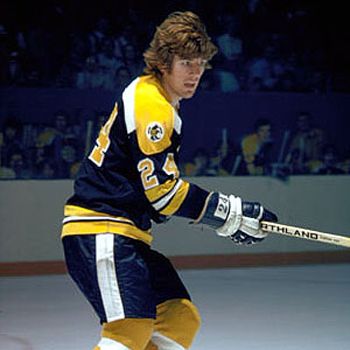
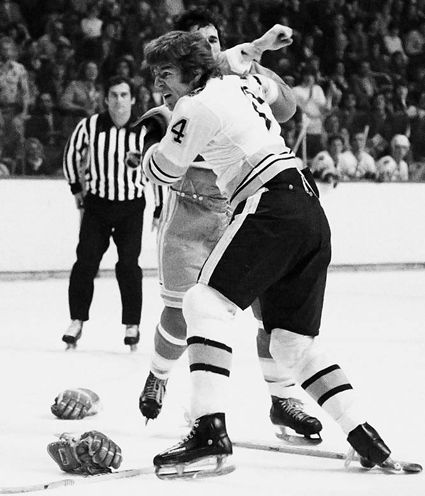
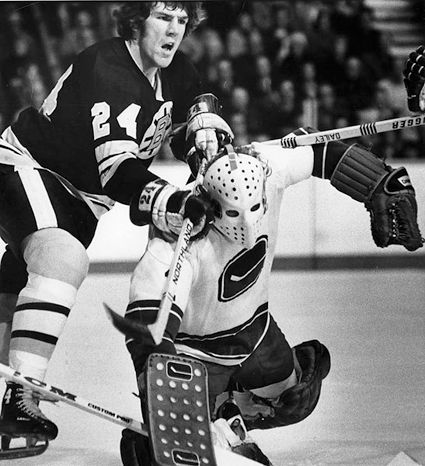
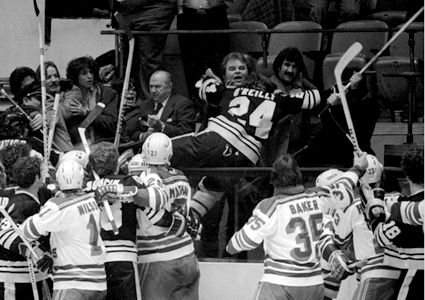
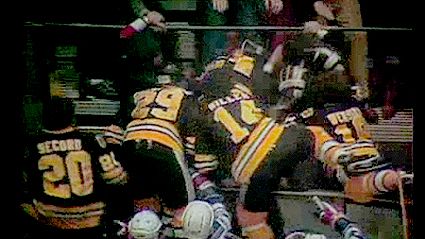
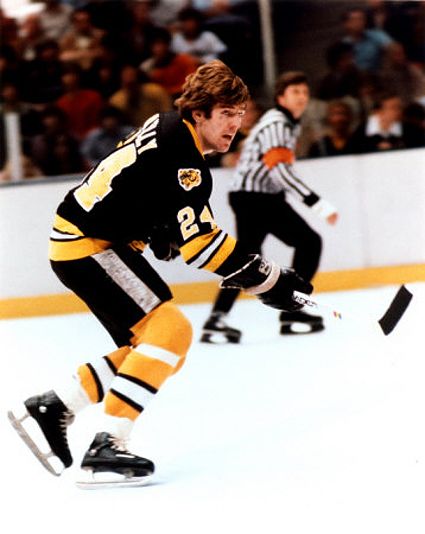
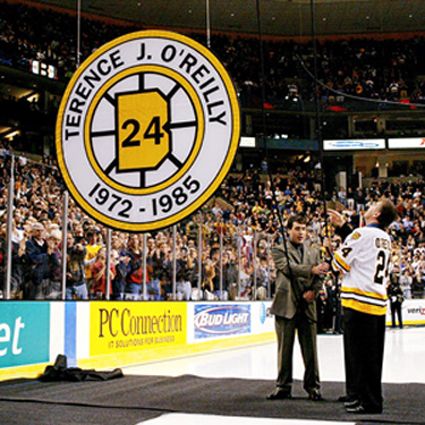
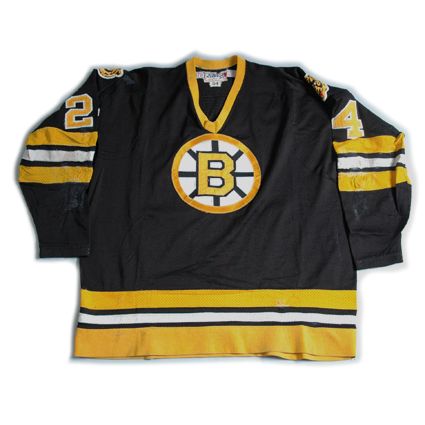
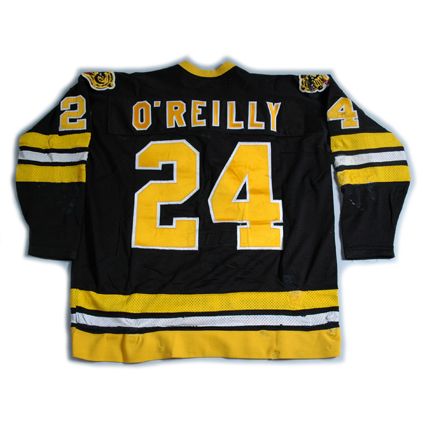
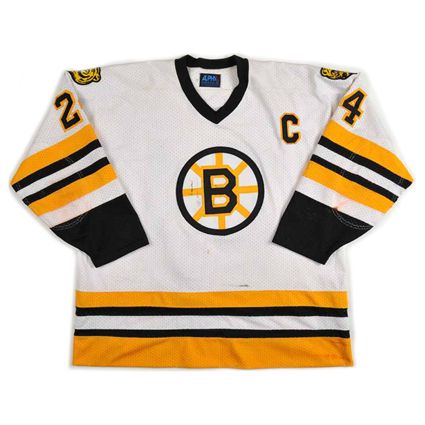
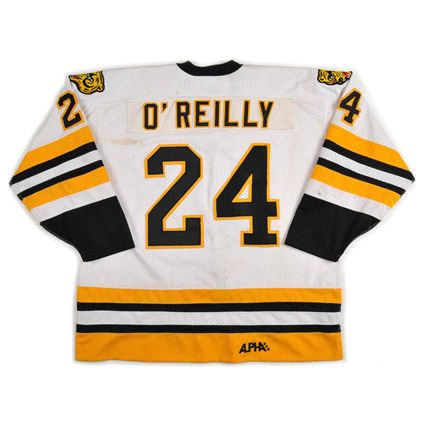










No comments:
Post a Comment
We welcome and encourage genuine comments and corrections from our readers. Please no spam. It will not be approved and never seen.